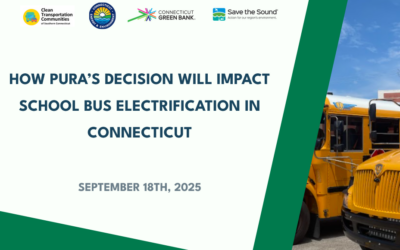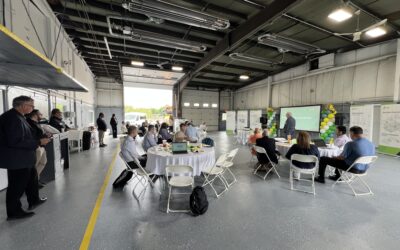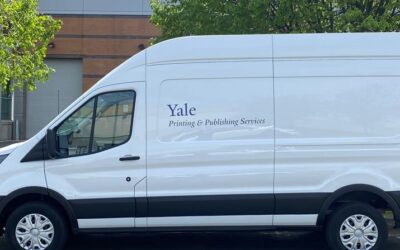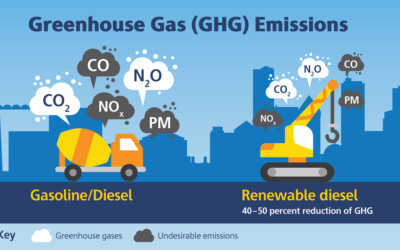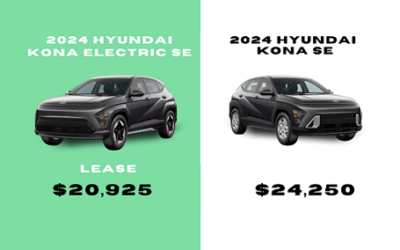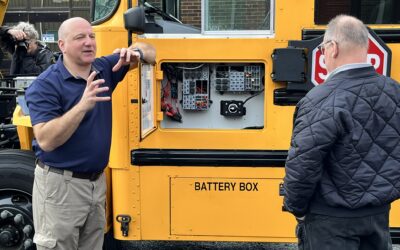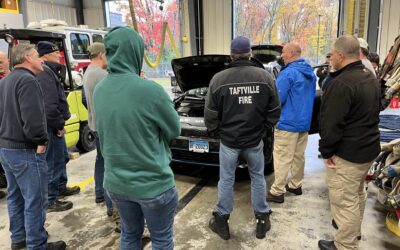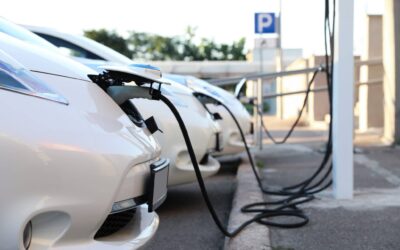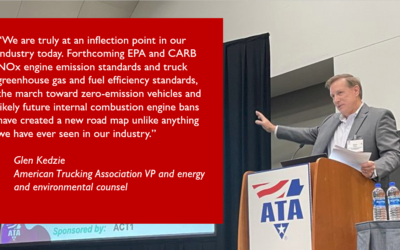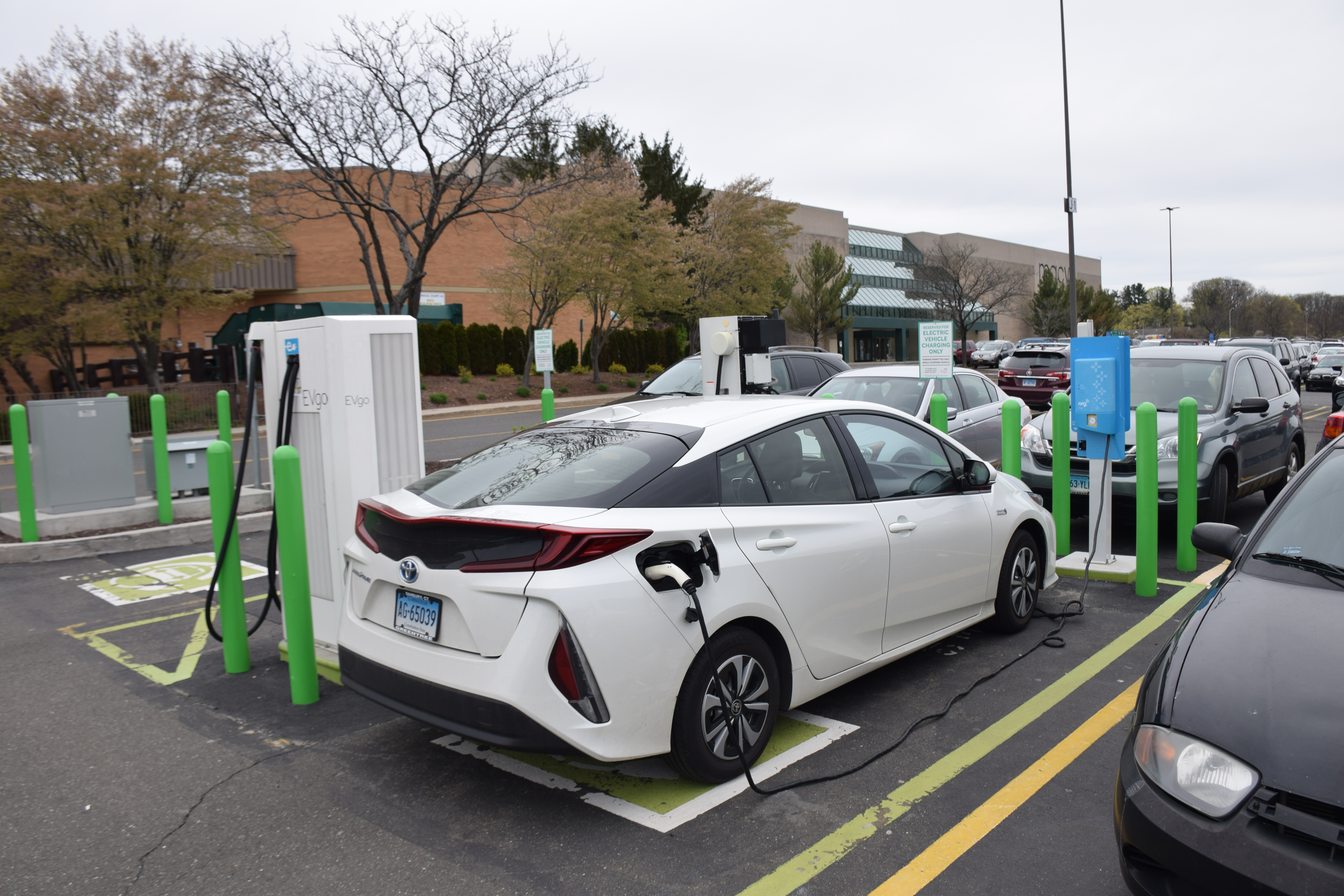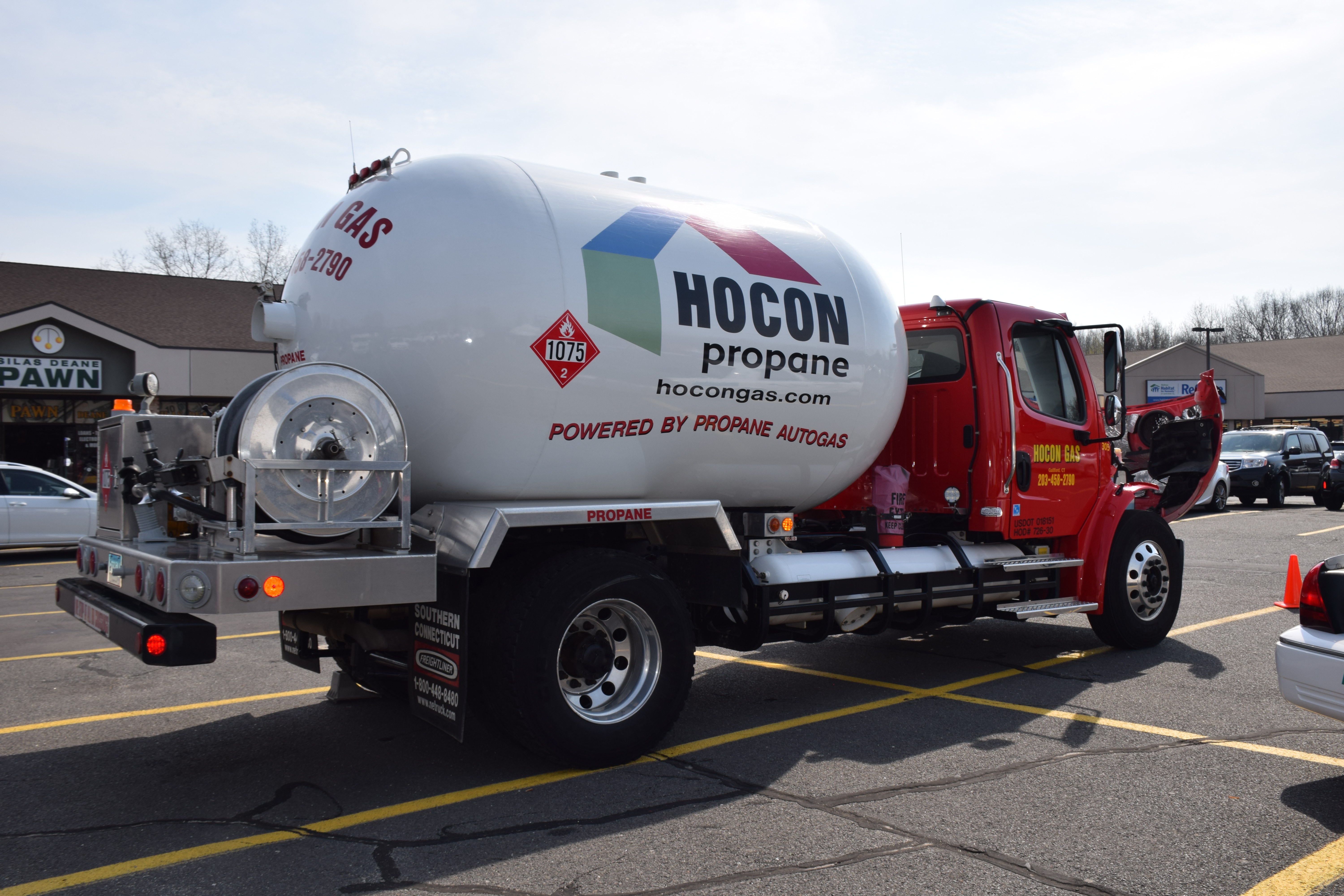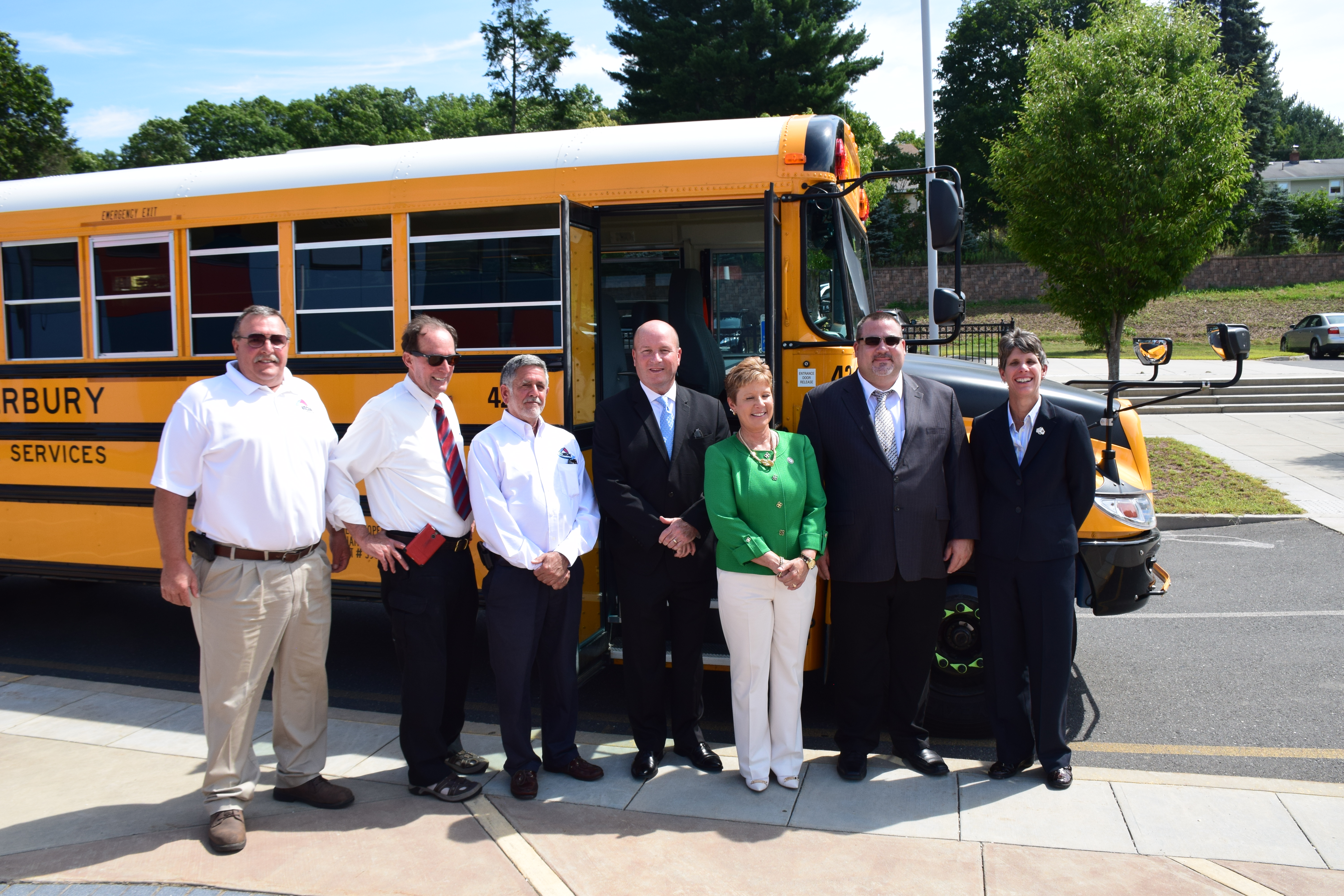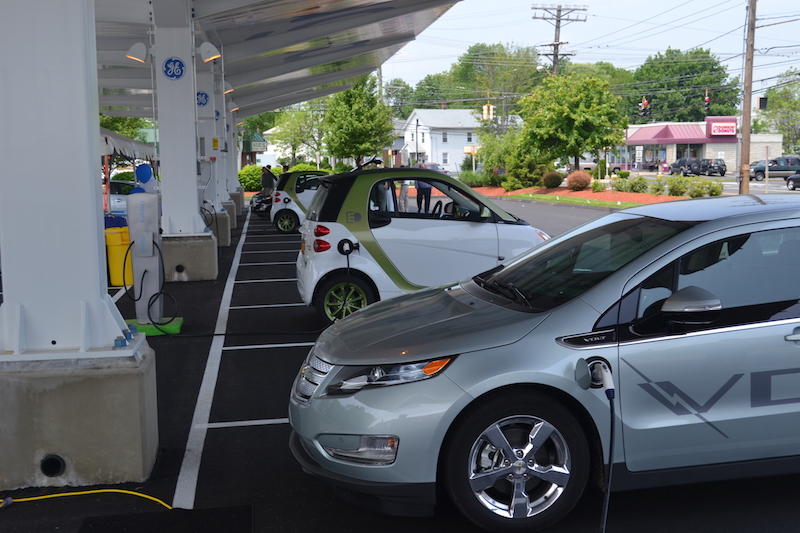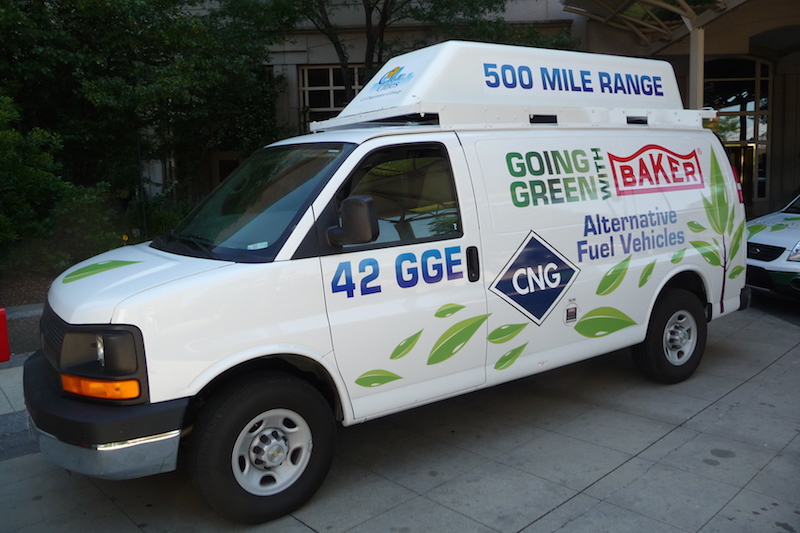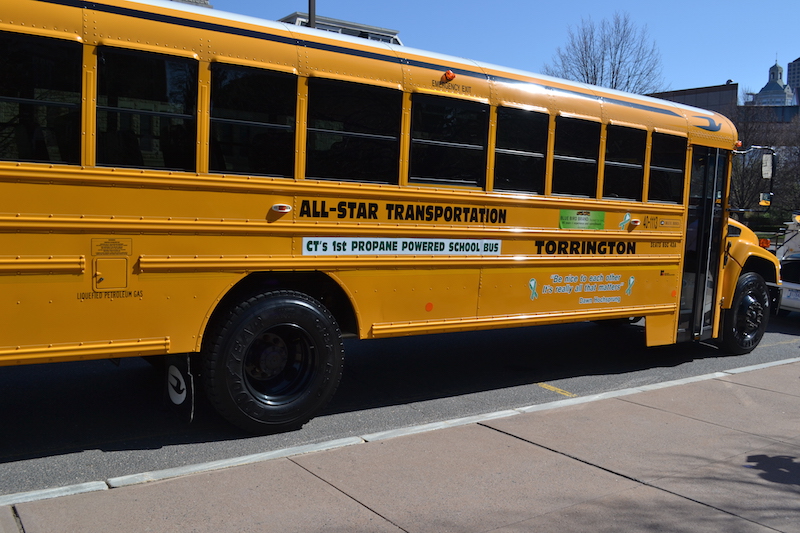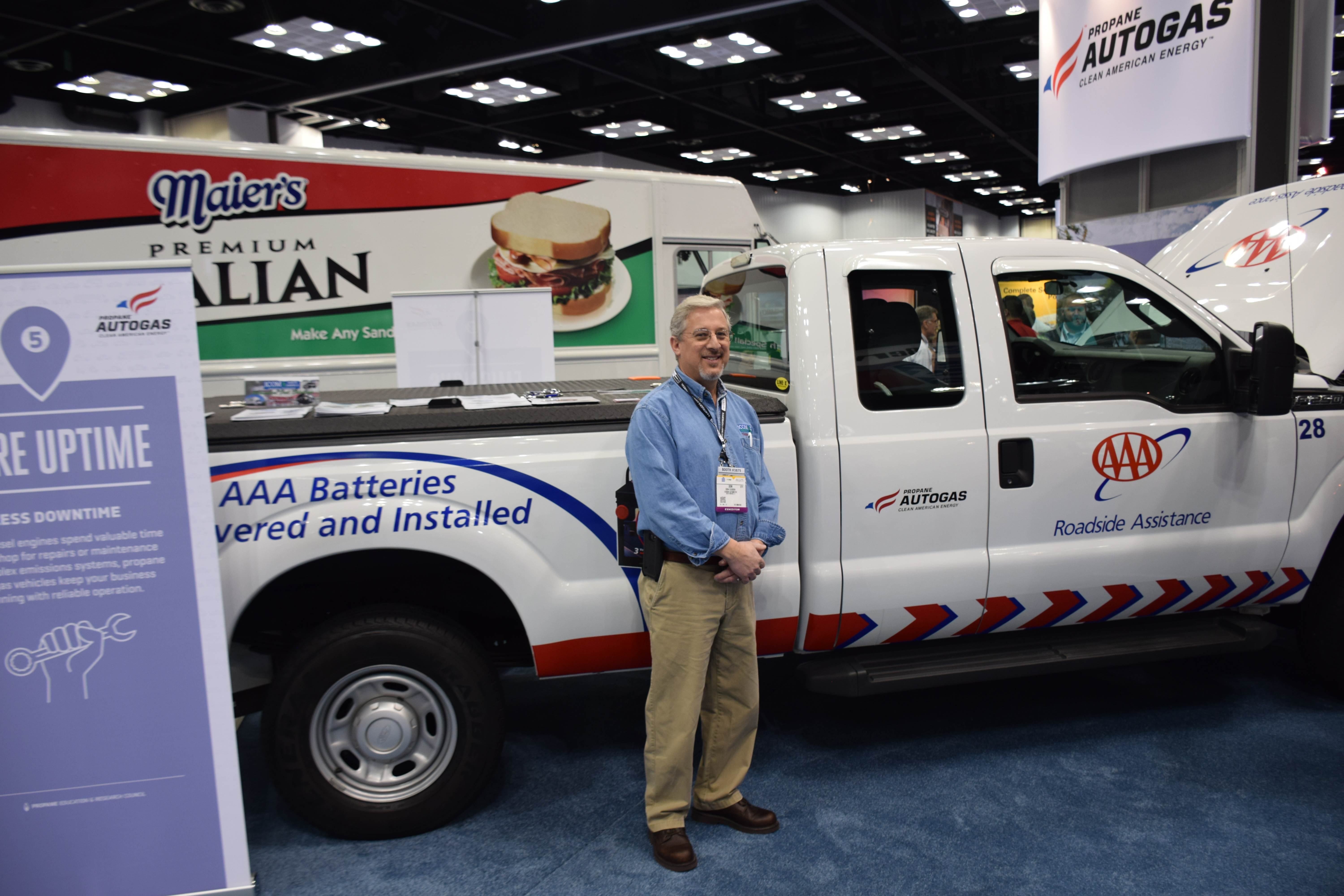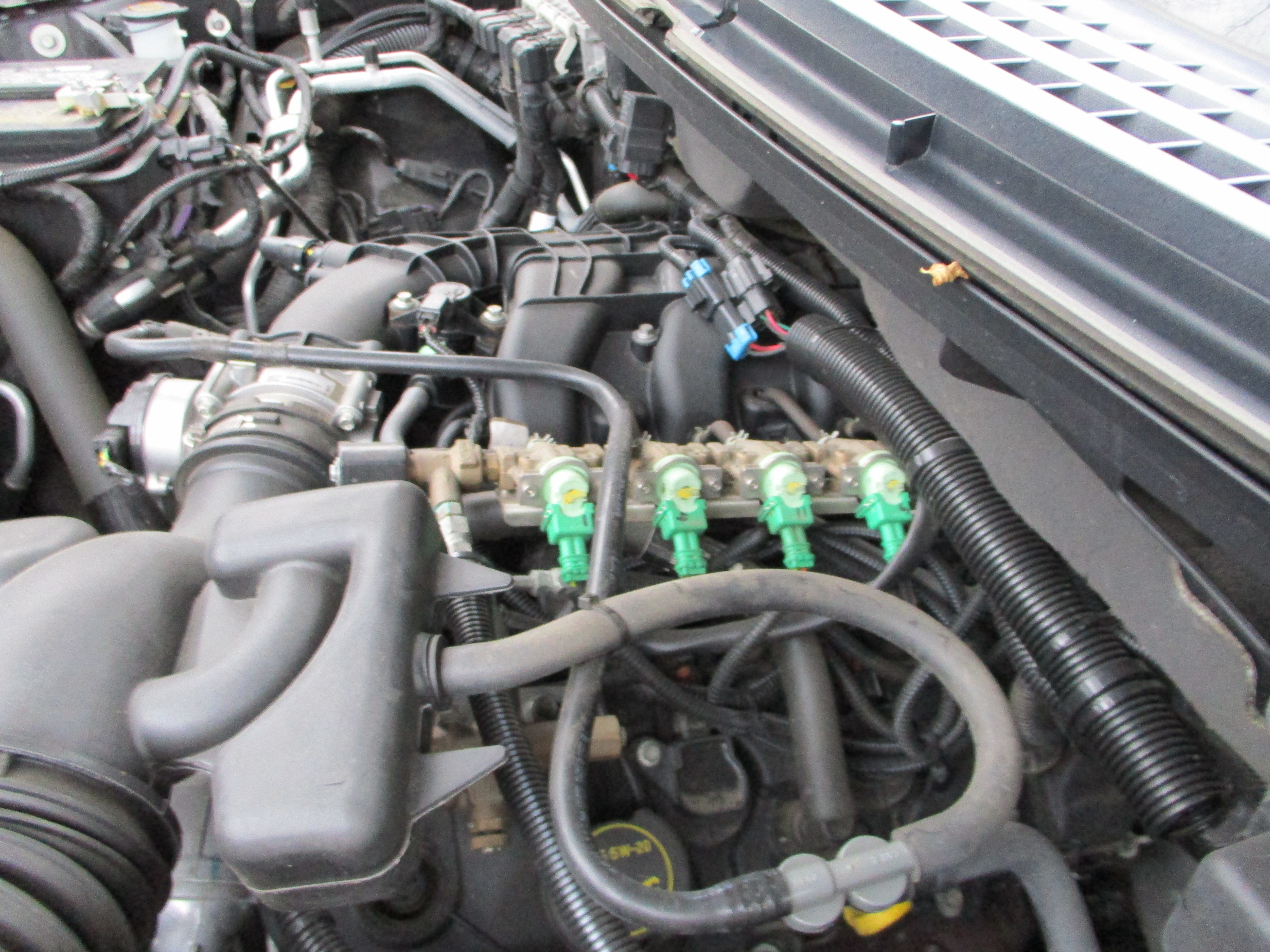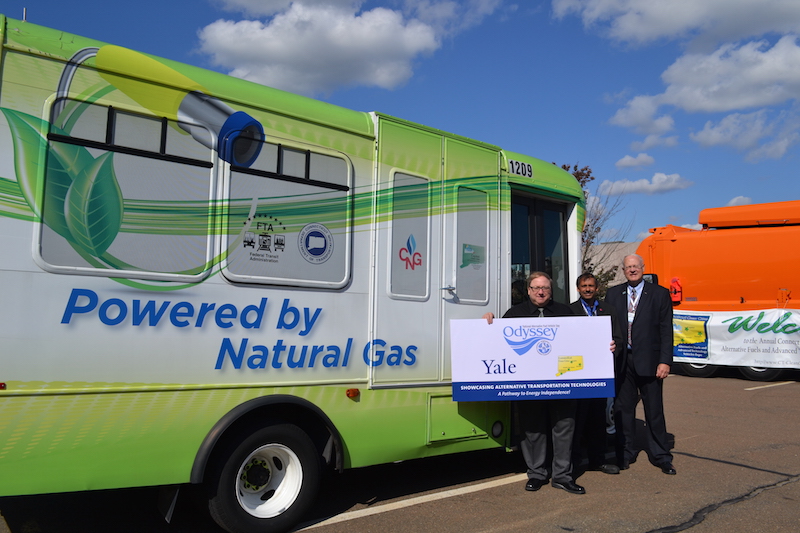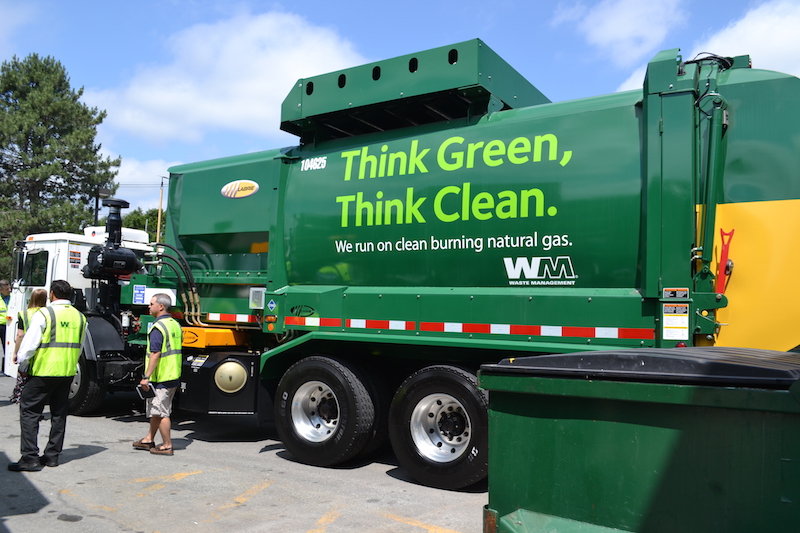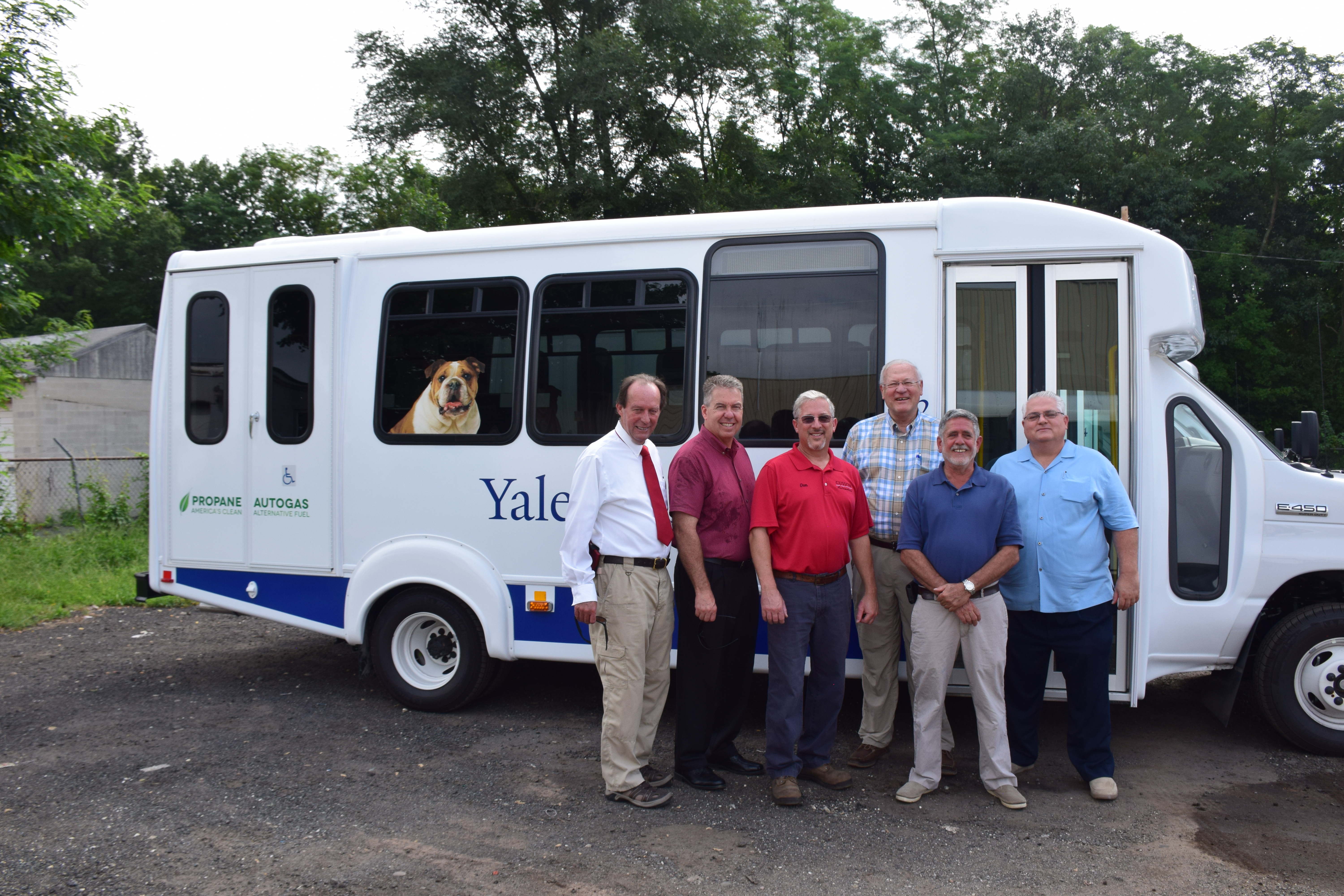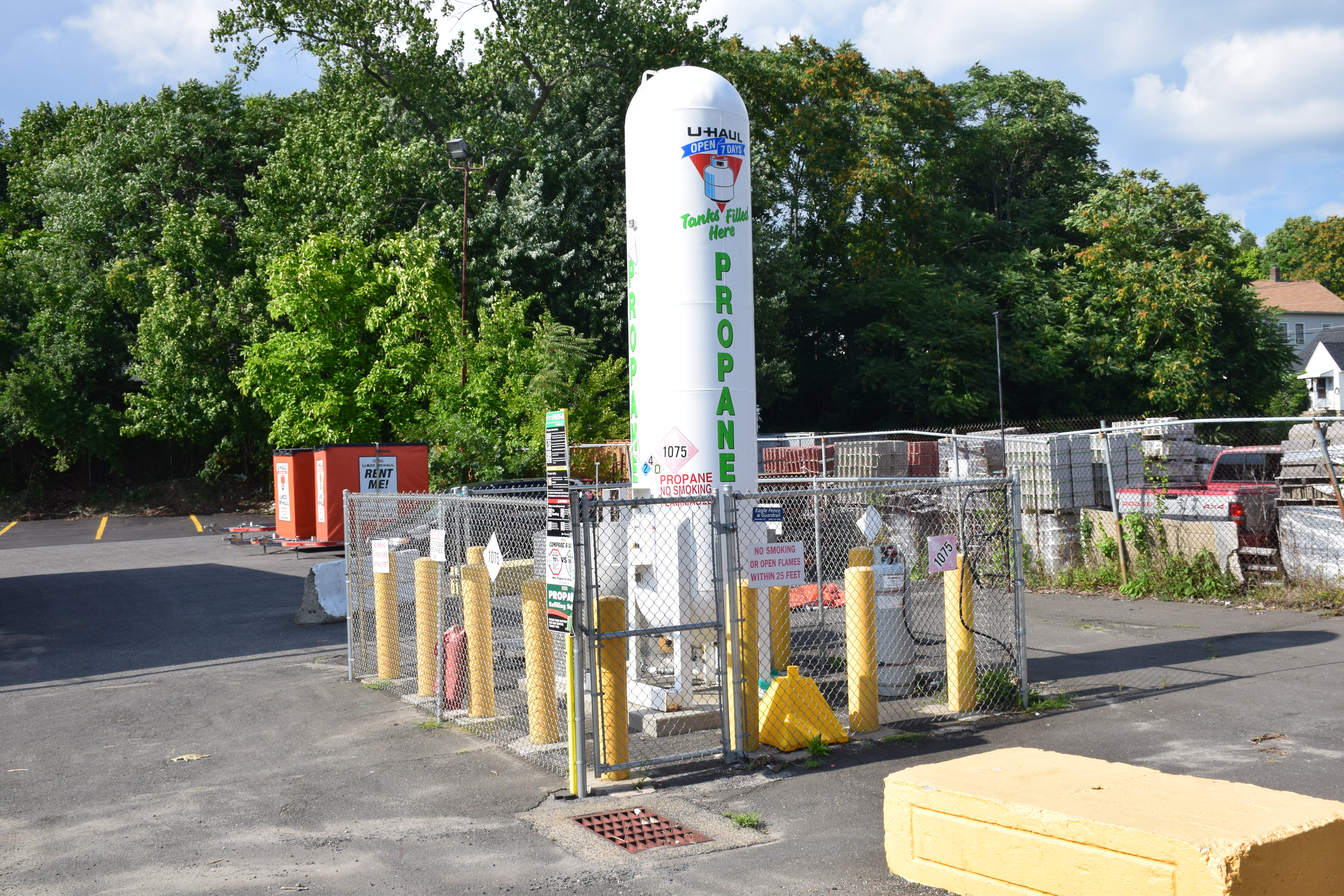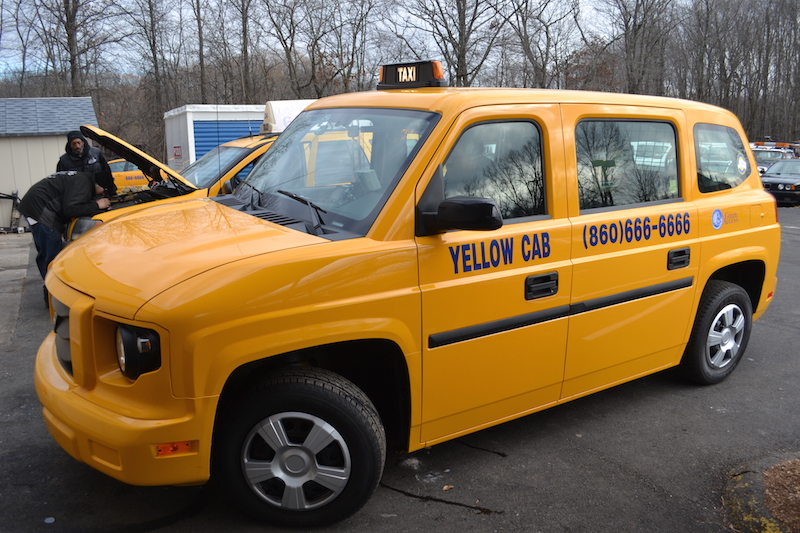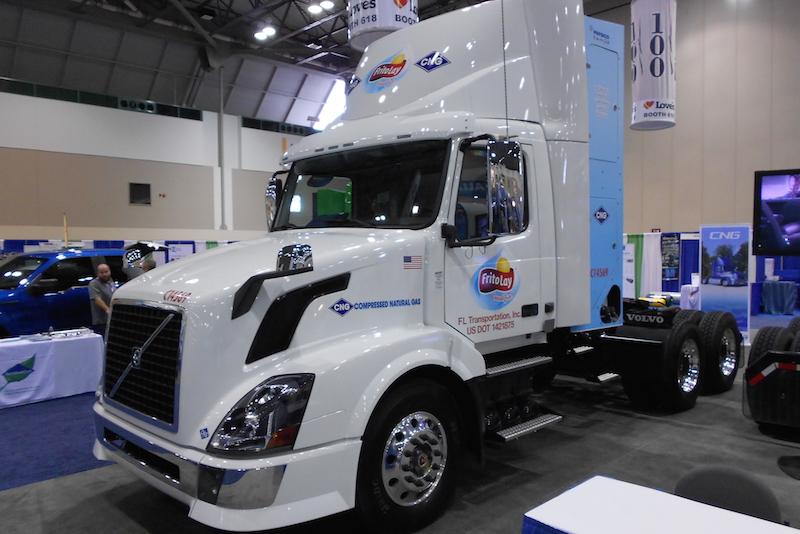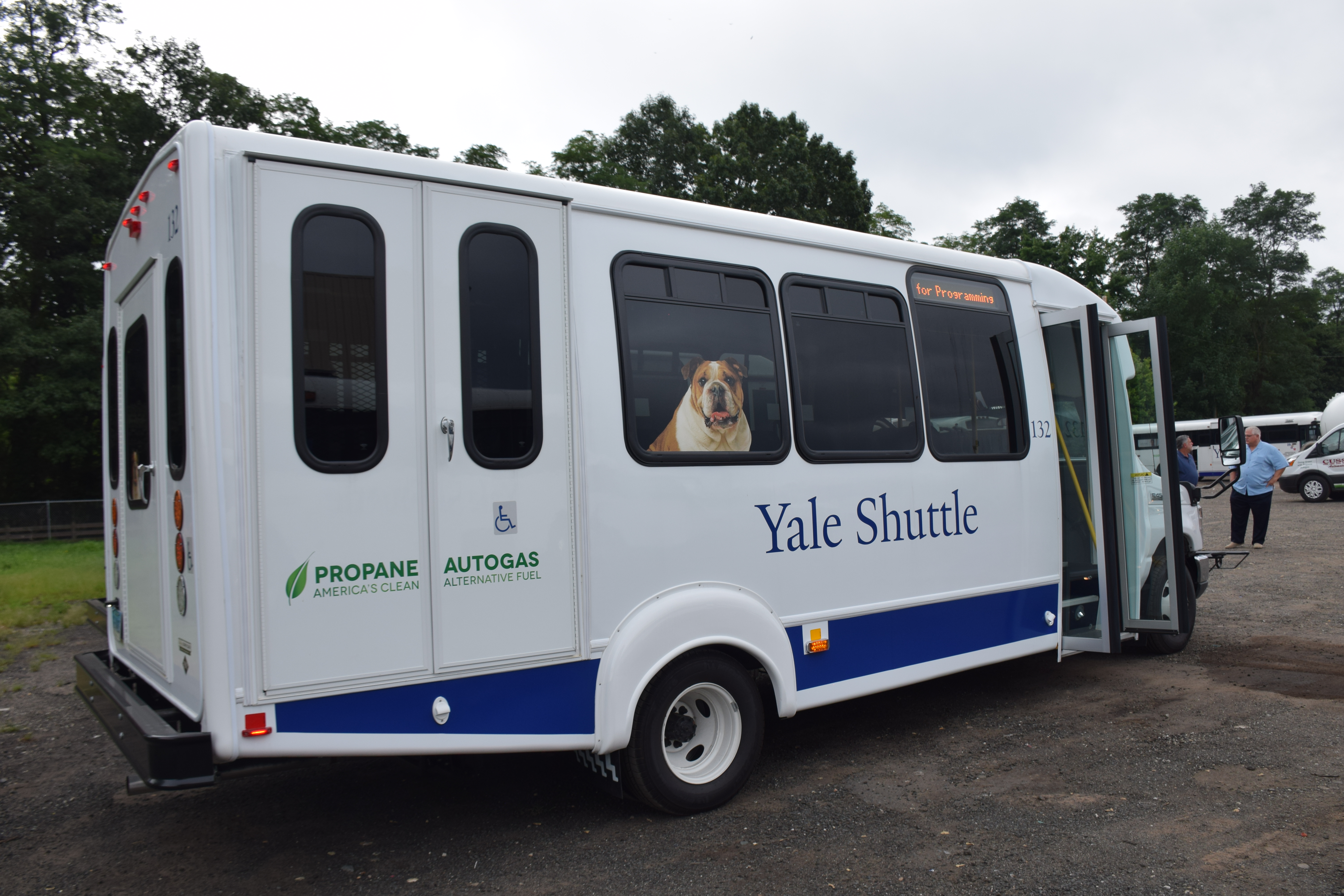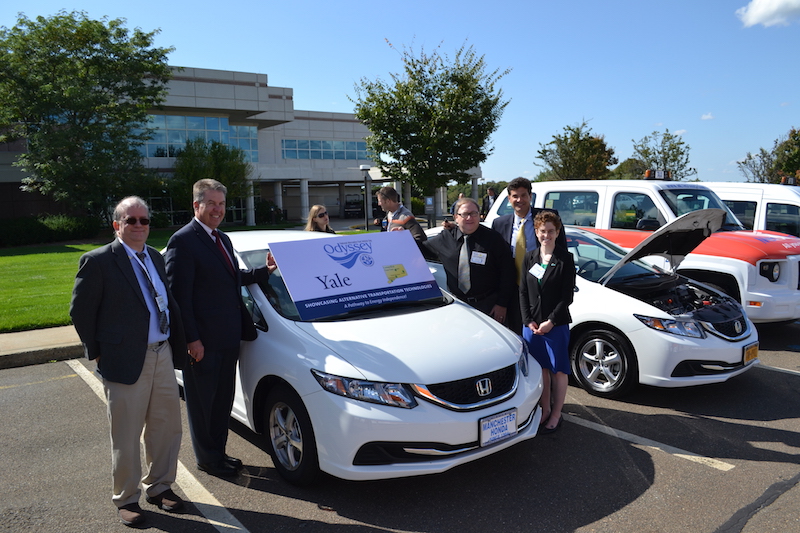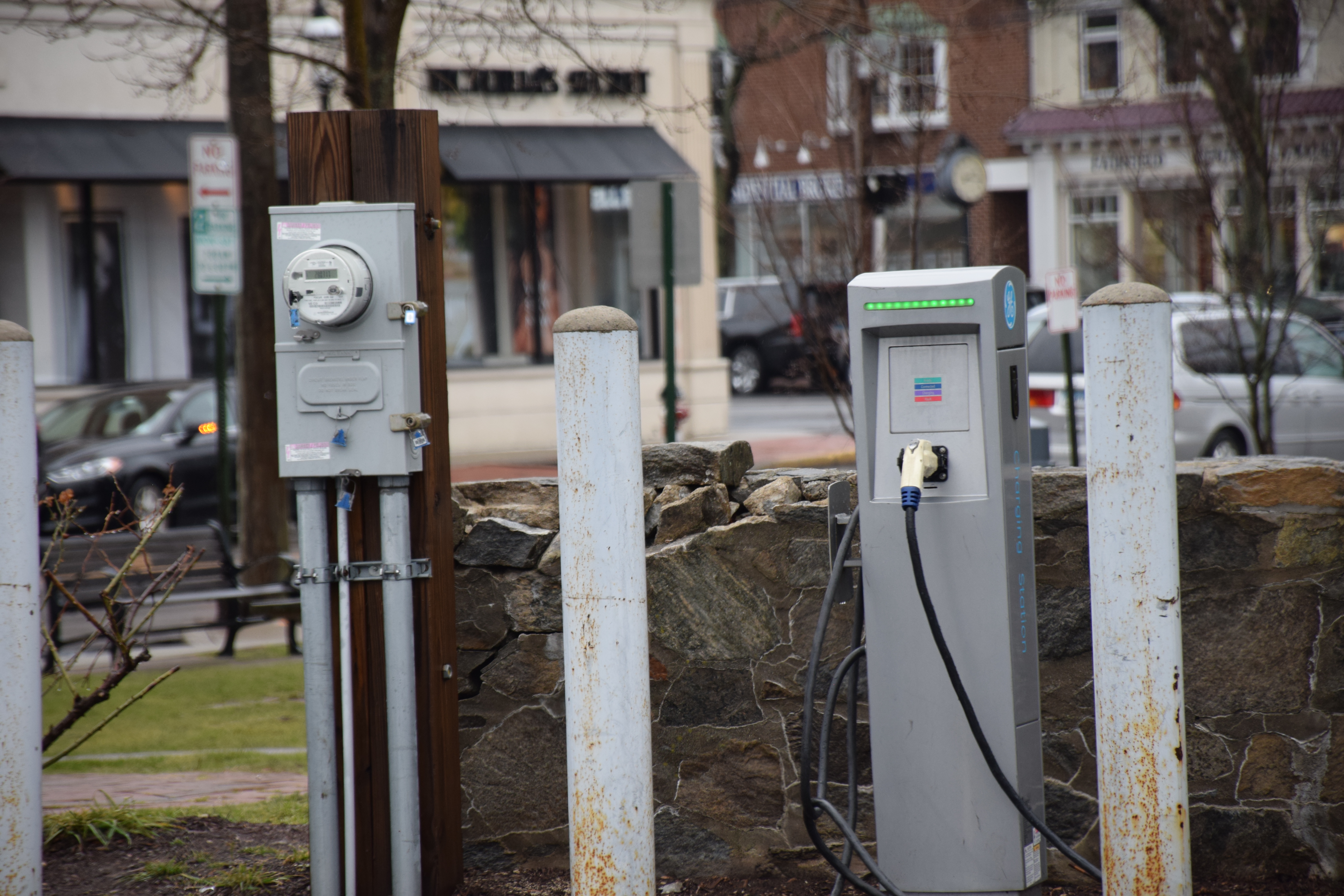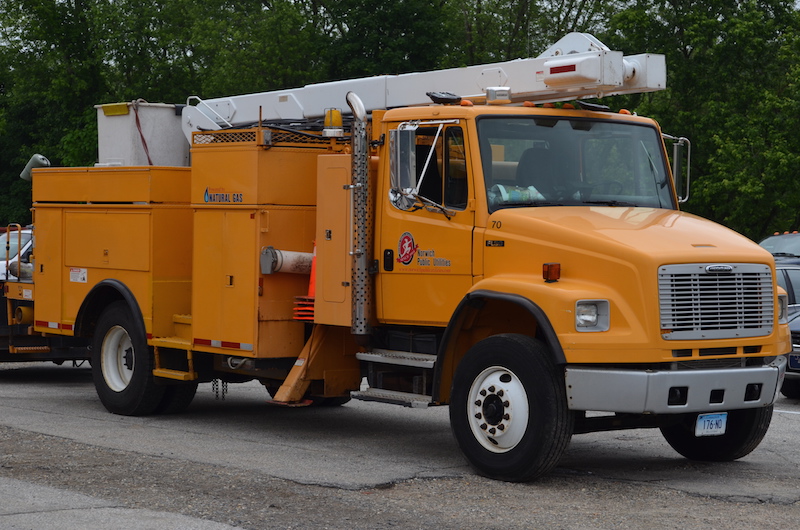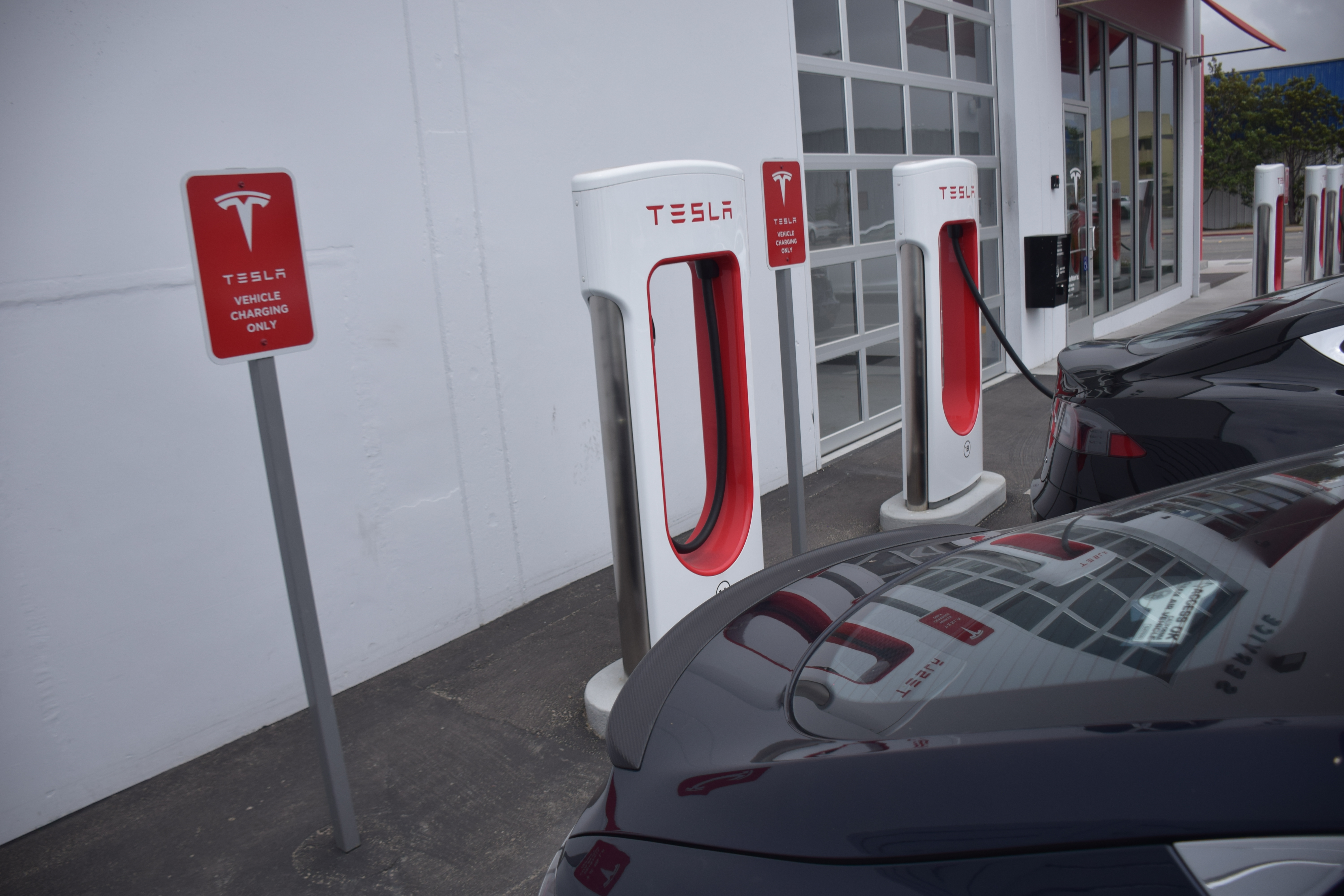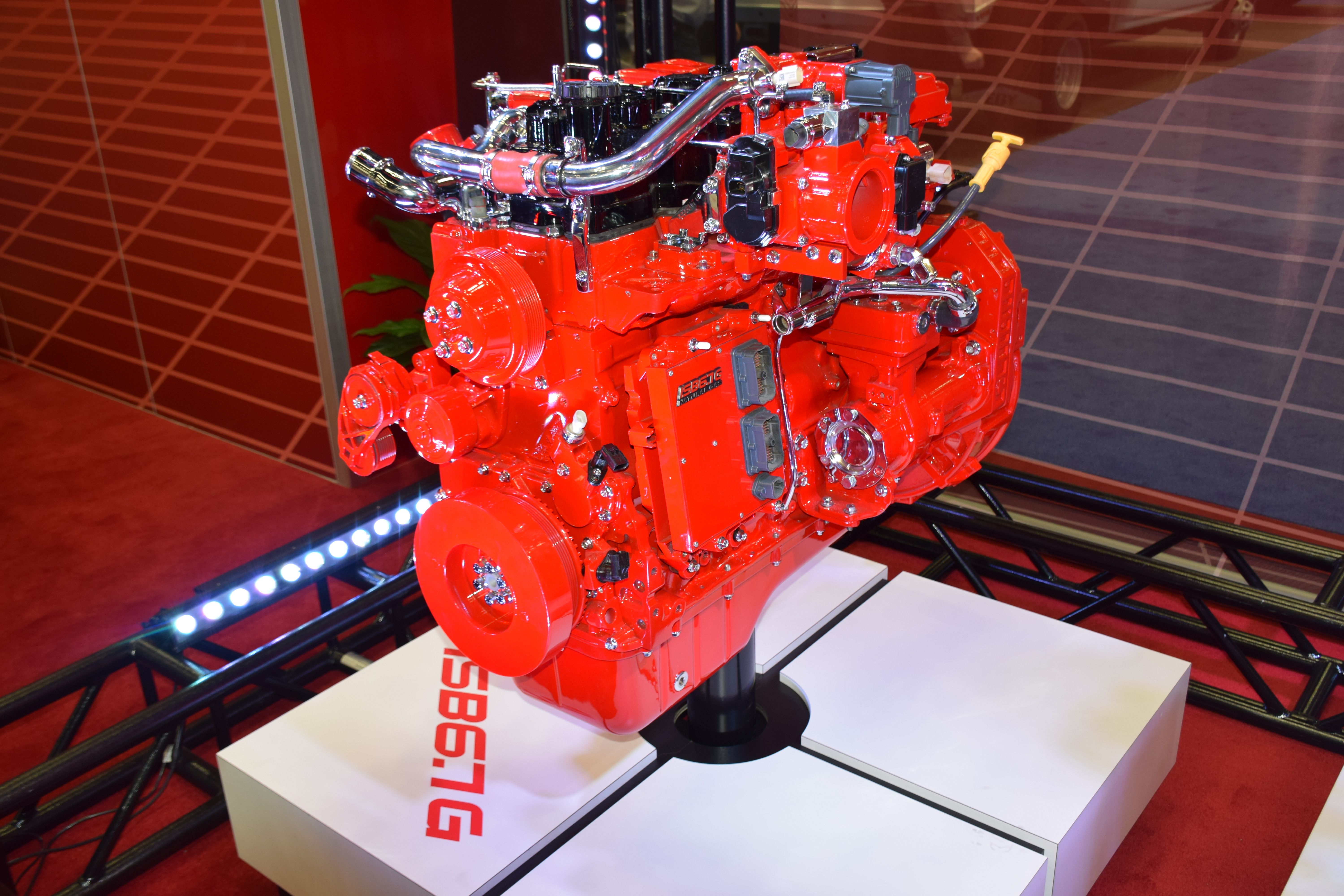The Latest
Archived stories here.
CT Electric Utility Regulator’s New Docket and What it Means for School Bus Electrification
In September of 2025, Clean Transportation Communities of Southern Connecticut (CTC) hosted a webinar unpacking how the Public Utilities Regulatory Authority’s (PURA) recent decision on medium and heavy-duty electric vehicle (MHD-EV) charging will shape the...
A Day Of Learning from Branford and Zum’s Trailblazing Ambition on School Bus Electrification
On Wednesday May 28th, The World Resources Institute (WRI)’s Electric School Bus Initiative and Clean Transportation Communities of Southern CT (CTC) convened an electric school bus (ESB) workshop at the bus yard of Branford Public Schools (BPS) and Zum, their...
How and Why Yale University is Transitioning to Cleaner Fuels in Support of a Greener, Healthier Campus
Yale University has set a target to achieve net zero emissions by 2035, progressing to zero actual carbon emissions by 2050. The university has long been at the forefront sustainability and climate efforts, setting its first target in 2005. It is also home to the...
Renewable Diesel Roundtable: A Path Toward Cleaner Fleets in Connecticut
Renewable diesel is a drop-in replacement for traditional diesel, offering fleet operators an opportunity to cut carbon emissions by as much as 50%, with minimal operational changes.
What dangerous substance do millions of school kids inhale every day?
See more from the Bezos Earth Fund on the importance of electric buses for both health and climate.
Leaders On School Bus Electrification Celebrate Progress And Chart The Way Ahead
Electric school buses are rolling out across the country, and millions of school children will benefit from the zero tailpipe emissions, improved student attendance, and reduced greenhouse gas emissions compared to diesel school buses. The latest news on this...
Listening and Learning From Underserved Communities: New Haven Residents Weigh In On Electric Truck Fueling Sites Criteria
As the U.S. transitions to zero-emission vehicles, the U.S. Department of Energy is funding a two-year effort to build a Northeast Freight Corridors Charging Plan. Led by the utility National Grid and supported by a number of Clean Cities and Communities Coalitions,...
On Yale’s Science Hill, a Greener Fuel Powers a Groundbreaking Transformation
At Yale’s Science Hill construction site there are no plumes of black exhaust pumping out of the machines. That’s because the construction equipment is running on R-99 fuel, a cleaner burning alternative to diesel that is made from waste cooking oils. Read more at Yale Sustainability
In CT, some EVs are cheaper than their gas-burning counterparts!
Contrary to popular belief, some new EVs are cheaper than similar gas-burning cars in CT, Rebates on the Chevy Bolt, Tesla Model Y, Hyundai Kona Electric, and Toyota Prius Prime can make them cheaper than conventional counterparts. Details follow.
Are Electric School Buses Safe?
While extremely rare, school bus fires are possible with any type of school bus. In general, electric vehicle fires are much less common than fossil fuel vehicles. A 2016 USDOT study found that school bus fires in the U.S. occur, on average, slightly more than daily, mostly starting in the engine area, running gear, or wheel area.
Hybrid and Electric Vehicle Trainings for CT First Responders – Hartford, New Haven & Eastern CT
92 first responders from around Connecticut attended the EV safety trainings in Windsor Locks, Willimantic and New Haven in 2023 and early 2024. Paul Norwood, director of training at the Connecticut Fire Academy, said electric vehicle fires present a unique challenge...
Wisdom From Early Leaders in CT School Bus Electrification
Early leaders of Connecticut’s transition to school bus electrification shared their wisdom with CT’s school districts in a November 6th roundtable hosted by Greater New Haven Clean Cities (GNHCC). The panelists included Connecticut Technical High School System...
Help Shape CT’s Private & Public Fleet Rebates for Light Duty Vehicles!
Help Shape CT’s Private & Public Fleet Rebates for Light Duty Vehicles! CT’s Department of Energy and Environmental Protection (DEEP) wants to hear from public and private fleet managers about how best to structure a rebate program for private and public fleets....
4/3/23: New funding for electric and propane school buses for your school district
Local school districts have been drafted to serve at the front lines of our need to transition to smarter, clean transportation technologies. Greater New Haven Clean Cities, the “boots on the ground” for the U.S. Dept. of Energy on this, seeks to support you with...
Recording & Slides: The Good, the Bad and the Ugly of the Future of Connecticut’s Medium and Heavy Duty Trucks and their Fuels
Unquestionably, new technologies and new vehicles emerging will guide us to cleaner-fueled vehicles that are more comfortable to drive. It is important the people running today’s fleets weigh in on on how and when we embrace these new truck technologies. Check out our kickoff Zoom meeting on 12/6/22.
About Us
CTC of Southern CT (formerly Greater New Haven Clean Cities Coalition) is an independent nonprofit bringing together stakeholders in the public and private sectors in New Haven, Middlesex and New London counties to deploy alternative and renewable fuels, idle-reduction measures, fuel economy improvements, and emerging transportation technologies. We improve air quality, support economic development, increase energy security, and reduce dependence on petroleum through education and training, technical assistance, networking opportunities, and funding assistance to our stakeholders.
Nationally, there are more than 75 Clean Cities and Communities coalitions designated and funded by the federal Department of Energy. We advance the nation’s economic, environmental, and energy security by supporting local actions to reduce greenhouse gas emissions and cut petroleum use in transportation.
Learn how the national network of Clean Cities and Communities coalitions works today to create the transportation system of tomorrow.
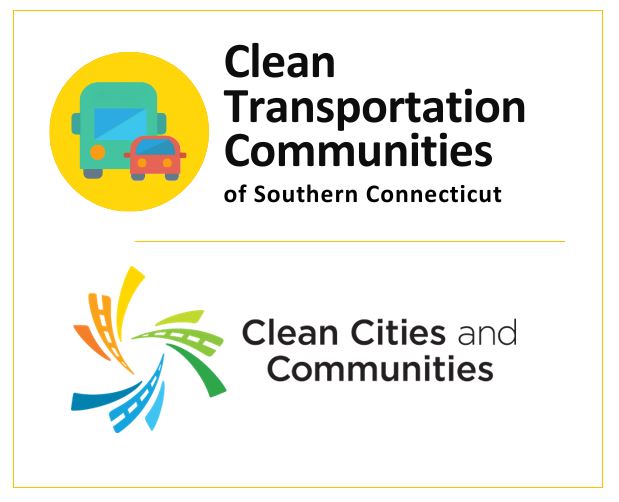
Why Clean Cities?
The United States consumes approximately 20 million barrels of petroleum per day, about three-fourths of which is used for transportation.
Support U.S. Economy and Energy Security
Reduce emissions impacting air quality and public health
Clean Transportation Communities of Southern CT Team
Paul Wessel, Director
wessel@nhcleancities.org
Geremy Schulick, Deputy Director / EVs and Charging Infrastructure
schulick@nhcleancities.org
Lee Grannis, Board Chair
grannis@nhcleancities.org
Peter Cyr, Program Manager / Fleet
cyr@nhcleancities.org
Josh Davis, Administrator
davis@nhcleancities.org
Ana Semeghini, Intern / Clean School Bus
ana@nhcleancities.org
Dan Ciarcia, Consultant
dan@twowillowsconsulting.com
CTC of Southern CT Stakeholders
Nearly 13,000 stakeholders contribute to Clean Cities’ goals and accomplishments through participation in nearly 100 Clean Cities coalitions across the country. Private companies, fuel suppliers, local governments, vehicle manufacturers, national laboratories, state and federal government agencies, and other organizations join together under Clean Cities to implement alternative-transportation solutions in their communities.
Agrifuels | Air & Gas Technologies | All American Waste | CabAire | City of Hamden | City of Meriden | City of New Haven | City of West Haven | Congresswoman Rosa DeLauro | Control Module | CT Center of Advanced Technology, Inc. (CCAT) | CT Department of Energy & Environmental Protection | CT Parent Power | CTTRANSIT | Cumberland Farms | Cusson Automotive | Eversource Energy | Ford Motor Company | Frito Lay | Gateway Community College | Greater New Haven Transit District | Hocon Gas | Leahy Fuels | Metro Taxi | Nissan | North American Equipment Upfitters Inc | Park Smart | Propane Education & Research Council | Propane Gas Association of New England | Propark | Proton Onsite | Regional Water Authority | Roush CleanTech | Santa Energy | Sikorsky Airport | South Central Regional Council of Governments | Southern Connecticut Freightliner | Southern Connecticut Gas | Stevens Ford | Sustainable America | Tasca | United Illuminating | Verdeck | Veterans Administration | Yale University
Technology
We work with fleets of all vehicle sizes, vehicle numbers, and vocations to find ways to reduce petroleum consumption through the use of alternative and renewable fuels, advanced vehicles, and other fuel-saving measures.
Alternative and Renewable Fuels
Many different fuel options exist which can help displace petroleum consumption and reduce emissions. These fuels are defined in the Energy Policy Act of 1992 (EPAct) including biodiesel, electricity, ethanol, hydrogen, natural gas, propane. Alternative fuels may include both renewable and non-renewable fuels, and interest in their use is expanding among the general public as well as large fleets. Although availability of different fuels has sometimes been a challenge in the past, refueling infrastructure is expanding throughout the country and specifically Connecticut to meet the growing demand.
You can download a list of available EVs, PHEVs, and fuel cell vehicles (FCVs) with data including make, model, year, range, MPGe, MSRP, federal tax credit, and the Connecticut Hydrogen and Electric Automobile Purchase Rebate (CHEAPR) incentive amounts.
You can download a list of available EVs, PHEVs, and fuel cell vehicles (FCVs) with data including make, model, year, range, MPGe, MSRP, federal tax credit, and the Connecticut Hydrogen and Electric Automobile Purchase Rebate (CHEAPR) incentive amounts.
![]() Propane, also known as liquefied petroleum gas (LPG) or propane autogas, has been used worldwide as a vehicle fuel for decades. It is stored as a liquid, and propane fueling infrastructure is widespread. To find out more about propane autogas, visit the US Department of Energy’s propane website or you can download a PDF fact sheet to print out.
Propane, also known as liquefied petroleum gas (LPG) or propane autogas, has been used worldwide as a vehicle fuel for decades. It is stored as a liquid, and propane fueling infrastructure is widespread. To find out more about propane autogas, visit the US Department of Energy’s propane website or you can download a PDF fact sheet to print out.
Alternative Fuel Prices
Vehicle Search
Fuel Station Locator
Gallons of gasoline equivalent saved in 2017
Alternative Fuel Vehicles
As vehicle technology continues to advance, the variety of vehicle types available is increasing rapidly. Consumers and fleets can now choose to purchase vehicles that use an alternative fuel, an advanced hybrid powertrain, all-electric vehicles, energy-efficient diesel, or simply a highly efficient conventional gasoline engine. More choices, such as fuel-cell vehicles are on the horizon. The Department of Energy provides a list of energy-efficient technologies that are offered on many vehicles available today. AFVs are available either as conversions or as original manufacturer equipment, and come in both light-duty passenger vehicles and heavy-duty vehicles and equipment. Alternative fuel vehicles (AFVs), as defined by the EPAct, include any dedicated, flexible-fuel, bi-fuel, or dual-fuel vehicle designed to operate on at least one alternative fuel. To the right are the definitions of each type.
Dedicated
Flexible-fuel
Bi-fuel
Dual-fuel
Success Stories & Case Studies
Alternative Fuel and Advanced Vehicle Search
Clean Cities Guide to Alternative Fuel & Advanced Medium- & Heavy-Duty Vehicles
Fuel-Saving Measures
 Find out how to reduce fuel costs, engine wear, emissions, and noise. Connecticut anti-idling regulations prohibit vehicles of all kinds from unnecessary idling for more than 3 minutes. You can find out about more Connecticut anti-idling efforts.
Find out how to reduce fuel costs, engine wear, emissions, and noise. Connecticut anti-idling regulations prohibit vehicles of all kinds from unnecessary idling for more than 3 minutes. You can find out about more Connecticut anti-idling efforts.Projects
CTC and its stakeholders have received several grants throughout the past few years! Click on the tabs below to find out what projects are being funded thanks to these awards.
- Advancing PEV Adoption in New England
- EV Smart Fleets
- CT Clean Cities Future Fuels Project
- BioWatz
- New Haven Trolley Line
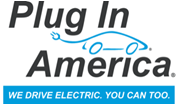 The Greater New Haven Clean Cites Coalition, Inc. (GNHCCC) partnered with Plug in America to promote and demonstrate plug-in electric vehicle (PEV) use by establishing local Connecticut showcases that provide a hands-on consumer experience and in-depth education in a variety of venues. The project will help promote the use of PEVs to reduce greenhouse gas emissions and dependence on petroleum in transportation. The project also covers the Northeastern states Rhode Island, Massachusetts, Connecticut, and Vermont. Visit www.FairfieldEVshowcase.org to see our first event of the project.
The Greater New Haven Clean Cites Coalition, Inc. (GNHCCC) partnered with Plug in America to promote and demonstrate plug-in electric vehicle (PEV) use by establishing local Connecticut showcases that provide a hands-on consumer experience and in-depth education in a variety of venues. The project will help promote the use of PEVs to reduce greenhouse gas emissions and dependence on petroleum in transportation. The project also covers the Northeastern states Rhode Island, Massachusetts, Connecticut, and Vermont. Visit www.FairfieldEVshowcase.org to see our first event of the project.
Public fleets are seeing huge benefits from the deployment of electric vehicles (EVs). By eliminating fuel consumption, EVs reduce costs to fleets, promote energy independence and help protect the environment. Although EVs are increasingly becoming a successful application for fleets, higher incremental costs, procurement processes, and insufficient charging infrastructure remain as critical barriers to adoption.
EV Smart Fleets seeks to address these barriers by aggregating state and local fleet purchases for EVs and charging stations through a multi-state aggregated EV solicitation and procurement agreement. EV Smart Fleets will leverage the purchasing volume of public fleets across the country in order to reduce vehicle and infrastructure costs, improve contract terms, provide access to a wider range of EV models, and expand access to charging infrastructure. This multi-state procurement will be issued and managed by the National Association of State Procurement Officials (NASPO) through its ValuePoint Program.
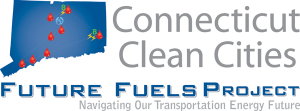 The Greater New Haven Clean Cities Coalition, Inc. (GNHCCC), together with over 30 partner organizations will develop and implement a state-wide, fuel-neutral effort that will deploy 269 alternative fuel vehicles (AFV) through incremental funding and provide fueling capability for 21 additional fleet vehicles and infrastructure necessary to directly support the vehicle deployments as part of the Connecticut Clean Cities Future Fuels Project. The project will increase the utilization of alternative fuels; strengthen the availability of alternative fuels for fleets and commercial consumers along major corridors in the state; raise awareness and foster greater understanding of alternative fuels and advanced vehicle technologies through a targeted outreach and education effort; create and retain jobs; reduce dependence on foreign oil; reduce harmful emissions; and contribute to a sustainable alternative fuels market.
The Greater New Haven Clean Cities Coalition, Inc. (GNHCCC), together with over 30 partner organizations will develop and implement a state-wide, fuel-neutral effort that will deploy 269 alternative fuel vehicles (AFV) through incremental funding and provide fueling capability for 21 additional fleet vehicles and infrastructure necessary to directly support the vehicle deployments as part of the Connecticut Clean Cities Future Fuels Project. The project will increase the utilization of alternative fuels; strengthen the availability of alternative fuels for fleets and commercial consumers along major corridors in the state; raise awareness and foster greater understanding of alternative fuels and advanced vehicle technologies through a targeted outreach and education effort; create and retain jobs; reduce dependence on foreign oil; reduce harmful emissions; and contribute to a sustainable alternative fuels market.  Funded in FY2008, the BioWatz Project allowed the GNHCCC to work with Chris Glynos at BioPur, Inc., located in Bethlehem, CT, to build on the biodiesel production facility operated by Glynos. The project engaged an integrated team to design, develop and deploy a Power Generation System at the BioPur facility which would enable the production of electricity with biodiesel. The project proved to be very successful, allowing Glynos to sell his renewable power to the local power company — after he uses some of it to provide power for the biodiesel production facility. The project collected data through a system designed and installed by Sabre Engineering of Colorado and Innovation Drive, the project management firm provided support to the growth of this operation. The federal project officially ended in late 2010.
Funded in FY2008, the BioWatz Project allowed the GNHCCC to work with Chris Glynos at BioPur, Inc., located in Bethlehem, CT, to build on the biodiesel production facility operated by Glynos. The project engaged an integrated team to design, develop and deploy a Power Generation System at the BioPur facility which would enable the production of electricity with biodiesel. The project proved to be very successful, allowing Glynos to sell his renewable power to the local power company — after he uses some of it to provide power for the biodiesel production facility. The project collected data through a system designed and installed by Sabre Engineering of Colorado and Innovation Drive, the project management firm provided support to the growth of this operation. The federal project officially ended in late 2010.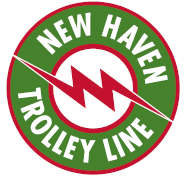 The City of New Haven in conjunction with the GNHCCC deployed an electric trolley system in downtown New Haven during the early 2000’s. E-Bus of Downey, California built four 22 foot dedicated electric trolley replicas that had the capability of both standard battery charging and fast charging. The batteries were charged with “Green Electric Power” derived from waterpower, wind and solar. The project provided a clean alternative fuel for public transportation. Everywhere the electric trolleys were put into service, mass transportation ridership increased dramatically because people appreciated the electric power train’s smooth, quiet, non-polluting ride. By going with the electric trolley technology, a reduction in dangerous soot particles associated with standard diesel powered buses was realized, as well as reducing the number of fuel trucks carrying foreign fuel to the vehicle refueling locations.
The City of New Haven in conjunction with the GNHCCC deployed an electric trolley system in downtown New Haven during the early 2000’s. E-Bus of Downey, California built four 22 foot dedicated electric trolley replicas that had the capability of both standard battery charging and fast charging. The batteries were charged with “Green Electric Power” derived from waterpower, wind and solar. The project provided a clean alternative fuel for public transportation. Everywhere the electric trolleys were put into service, mass transportation ridership increased dramatically because people appreciated the electric power train’s smooth, quiet, non-polluting ride. By going with the electric trolley technology, a reduction in dangerous soot particles associated with standard diesel powered buses was realized, as well as reducing the number of fuel trucks carrying foreign fuel to the vehicle refueling locations. Fleets in New Haven county using alternative fuels
Tons of greenhouse gas emissions avoided in 2017
Resources
Click on the icons below for more information and resources on Clean Cities and Alternative Fuel Vehicles.
Get Involved
Click on the tabs below for more information on how you and your organization can get involved.
Upcoming Events
Videos
Click on the tabs below to watch our videos. You can find all of our videos and more on our YouTube Channel at GNHavenCleanCities.
- Connecticut Takes Pride in Alternative Fuels
- Metro Taxi debuts natural gas fueling station
- Propane school buses
- 2017 Fairfield EV Showcase
- Natural gas powers CT cabs
- Cities make the clean switch to natural gas
- Liquefied natural gas powers trucks in CT
- National Drive Electric Week 2016, Cheshire, CT
- CT's First Full Size Electric School Bus @ ACES
Find more videos from the event in our Zero Emission Vehicle playlist on YouTube. Experience test drives in different electric vehicles, find out about charging availability, why people love their electric vehicles, and more.
Electric Car Week from bruce lomasky on Vimeo.
Contact Us
Phone 203-200-0246
P.O. Box 26, New Haven, CT 06510
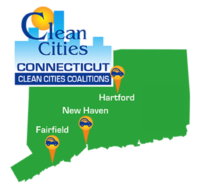
The Connecticut Clean Cities Collaborative
Three Clean Cities Coalitions cover the entire state, according to your county.
Clean Transportation Communities of Southern CT (Formerly Greater New Haven Clean Cities)
Serving New Haven, Middlesex and New London Counties
Paul Wessel
203-200-0246

